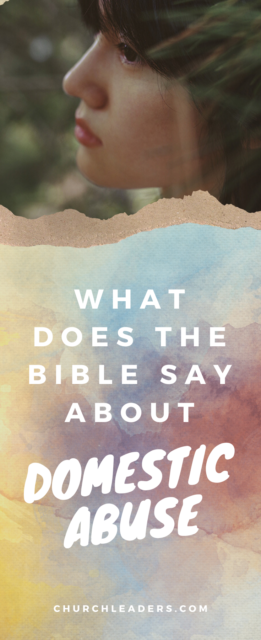But Jesus doesn’t talk directly about abuse…
The life of Jesus is the biblical model for understanding God, and for identifying how God responds to violence and abuse. Jesus’ ministry was about exposing injustice and advocating for the marginalized, oppressed and abused. He was particularly concerned with women and children, who were often considered less important and made vulnerable by oppression and abuse.
Jesus reminds us that the vulnerable are violated by the denial of justice. He reveals God’s heart for compassion, healing and restoration to a full and equal life (Luke 11:46, 17:2, 18:1-8, John 8:1-11). This is why Jesus stops the stoning of the woman under suspicion of adultery (John 8:1-11), heals the bleeding woman (Luke 8: 43), and speaks to the woman at the well who has had five husbands (John 4:1-42).
Men had the power and privilege in family and societies in biblical times, and still do today in many situations. Jesus addresses the marginalization and abuse of these women by the men who should have protected and provided for them so they could flourish. By speaking to these, and other women in Scripture, Jesus brings women back into a position of status in society.
God acts on behalf of the abused
What does the bible say about domestic violence? We can see throughout the Bible that God is not passive about violence committed against women. God acts decisively and compassionately to call us to love mercy, act justly, and nurture healing and justice—most especially when power is used to harm others.
The Bible, then, honestly tells the story of women who are abused (such as the rape of Tamar in 2 Samuel 13). The purpose is not to justify violence, but to tell the truth that God sees when men abuse women, and to show that God’s heart breaks for the abused.
God acts clearly through the life and death of Jesus to take an ultimate stance against all forms of violence, oppression and abuse. God is love, and God’s love will not stand passively when women are abused (1 John 4:8).
The invitation to you today is, how will you respond to help the church be a safe place for women to be free from abuse? For free resources on domestic abuse, go to www.allykern.com. You can also connect with her on Facebook at on Twitter.
[1] World Health Organization, Department of Reproductive Health and Research, London School of Hygiene and Tropical Medicine, South African Medical Research Council, Global and regional estimates of violence against women: prevalence and health effects of intimate partner violence and non-partner sexual violence (2013), 2. For individual country information, see United Nations Department of Economic and Social Affairs, The World’s Women 2015, Trends and Statistics (2015), ch. 6, ‘Violence against Women’.
[2] Office for National Statistics, Intimate partner violence and partner abuse (London: ONS, 2014), ch. 4.
[3] Office for National Statistics citing Homicide Index, Home Office (Published Online: Office for National Statistics, 2015 – go to the first bulletin table and click on the tab labelled Figure 2.5).
[4] L. Radford, & C. Cappel, Domestic Violence and the Methodist Church: The Way Forward(University of Surrey, Roehampton, 2002).
[5] To learn more about the various forms of domestic abuse, see
http://www.allykern.com/ipvsyllabus/
[6] ‘How’s the Family?’ Evangelical Alliance Report 2012, http://www.eauk.org/church/resources/snapshot/hows-the-family.cfm
This article on what does the bible say about domestic violence originally appeared here.












